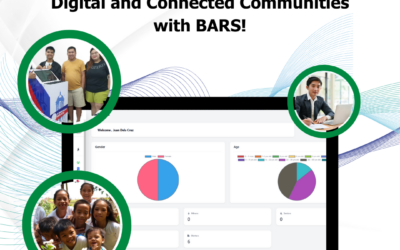Barangay Automated Records Solution (BARS) in the Philippines
Introduction to Barangay Governance in the Philippines
Barangays play a pivotal role in the local governance system of the Philippines. As the smallest administrative division, barangays serve as the primary planning and implementing unit of government policies, plans, and programs within the community. But have you ever wondered how these responsibilities are managed and regulated? That’s where Republic Act 7160 comes in — a cornerstone of barangay governance.
Understanding Republic Act 7160
Republic Act 7160, widely known as the Local Government Code of the Philippines, is the legal compass for barangay governance. Enacted in 1991, it empowers local government units (LGUs) by decentralizing authority, thus promoting accountability, participation, and independence in decision-making. The code outlines essential provisions for barangay administration and guides how local communities should operate.
Role and Responsibilities of Barangays
A barangay is not just about jurisdiction; it’s the community’s heartbeat. Barangays manage local community affairs, including public services like health care, waste management, and maintaining peace and order. They are the front-liners in implementing policies and fostering grassroots development.
Challenges in Barangay Governance
Barangays face numerous challenges, with administrative and record-keeping issues being the forerunners. Most barangays rely on manual systems, leading to inefficiencies, data loss, and inaccuracies. Additionally, resource constraints hinder their ability to provide quality public services effectively.
Barangay Laws and Regulations
Navigating the landscape of barangay governance involves a solid understanding of barangay laws and regulations. These legal frameworks ensure accountability and fairness in barangay administration. Compliance with these laws is crucial to maintaining order and integrity within the community.
The Need for Automation in Barangay Governance
In an era where technology is king, manual systems are a relic of the past. Automating barangay processes can drastically improve public service delivery. Imagine faster, more accurate record-keeping and efficient service delivery — that’s the promise brought forth by automation.
Introducing BARANGAY AUTOMATED RECORDS SOLUTION (BARS)
Enter BARS Philippines with its innovative Barangay Automated Records Solution. Designed to modernize barangay administration, BARS aims to enhance efficiency and transparency by digitizing records and administrative tasks.
Features of Barangay Automated Records Solution
BARS boasts a user-friendly interface, ensuring ease of use for barangay officials, along with secure data management to protect citizen information. It’s a digital leap forward for barangay governance.
Benefits of Automated Solutions in Barangay Administration
Switching to automated solutions like BARS reaps significant benefits. From time-saving efficiencies to heightened accuracy and accountability, BARS revolutionizes how barangays manage their duties.
How BARS Enhances Barangay Governance
By streamlining administrative processes, BARS reduces the time and costs associated with traditional manual systems. This, in turn, allows barangays to allocate resources more effectively, improving overall governance.
Case Studies of Successful BARS Implementation
Several Philippine barangays have embraced BARS, witnessing transformative impacts. These case studies highlight positive outcomes, including improved service delivery and operational efficiencies, underscoring the solution’s effectiveness.
Steps to Implement BARS in Local Barangays
Implementing BARS is a multi-step process, starting with an initial assessment to understand existing challenges. This is followed by strategic planning, training, and capacity building to ensure a smooth transition.
Future of Barangay Automation and Governance
The future is bright with the ongoing trend towards local governance automation. Technological advancements will continue to shape community development, making way for smarter, more sustainable barangay operations.
Community Engagement and Stakeholder Support
Successful barangay governance isn’t solely about technology; it’s about people. Engaging with the community and garnering stakeholder support is vital in making automation initiatives like BARS thrive.
Conclusion
Automation, with tools like BARS, is more than just a fancy term; it’s the key to unlocking efficient barangay governance. By modernizing processes and enhancing transparency, barangays can better serve their communities while staying true to the principles of Republic Act 7160.
FAQs
What is Republic Act 7160 and how does it affect barangays?
Republic Act 7160, also known as the Local Government Code, defines the powers and responsibilities of local government units, including barangays, promoting autonomy and effective governance.
How does BARS improve record management in barangays?
BARS digitizes and automates record-keeping processes, ensuring accuracy, efficiency, and secure data management, resulting in improved administrative operations.
What are the common challenges in barangay governance that BARS addresses?
BARS addresses inefficiencies, data loss, and inaccuracies common in manual systems by providing a digital solution that streamlines administrative tasks.
Can small barangays afford to implement BARS?
While affordability can be a concern, the long-term savings and improved operational efficiencies offered by BARS make it a worthwhile investment for even small barangays.
How does community engagement influence the success of BARS implementation?
Community engagement ensures that the needs and concerns of citizens are addressed, fostering support and cooperation which are crucial for successful implementation.




0 Comments